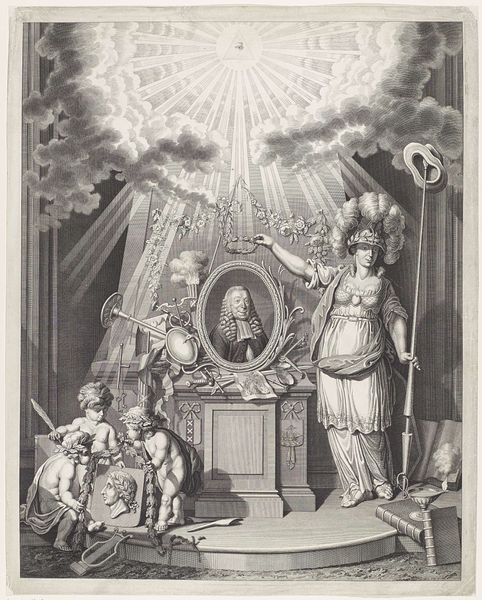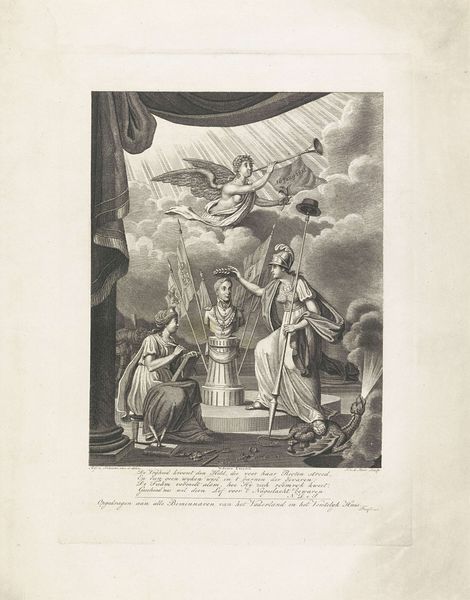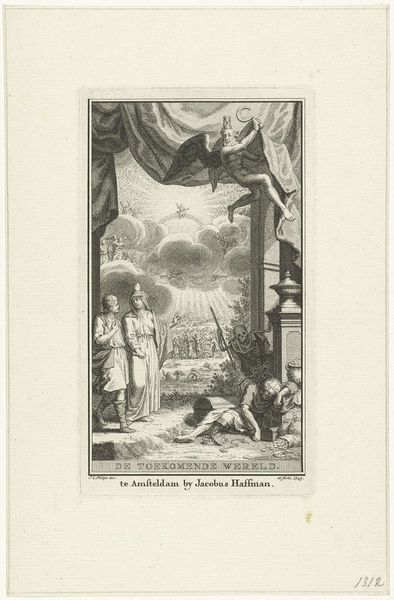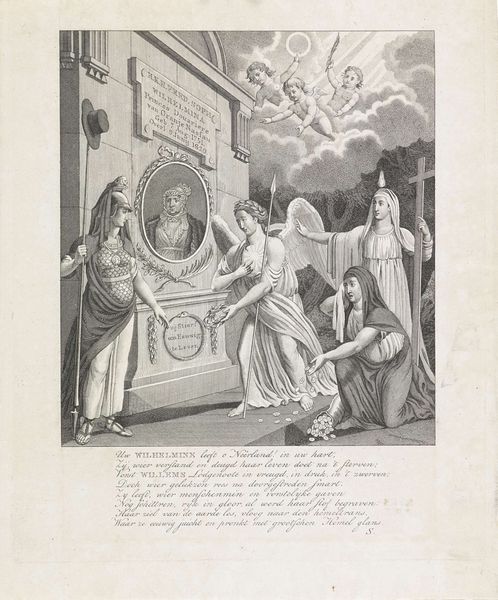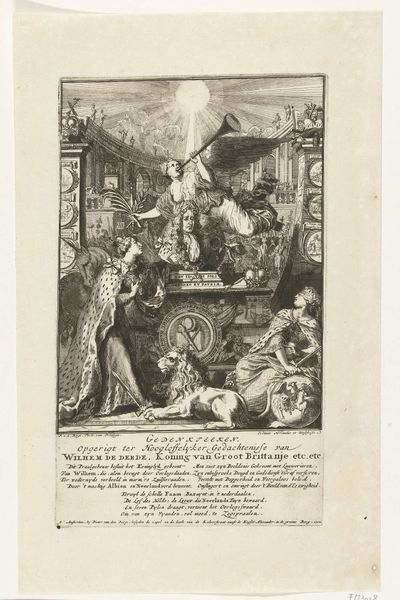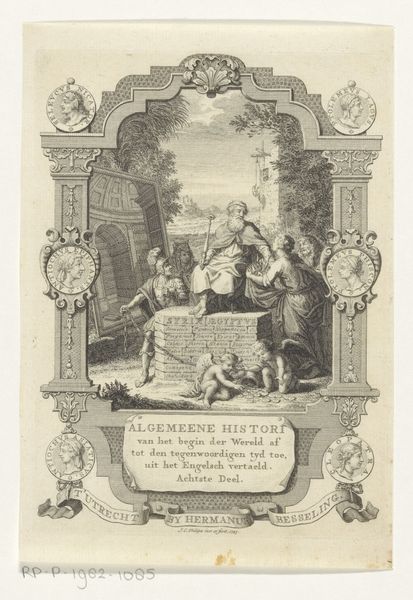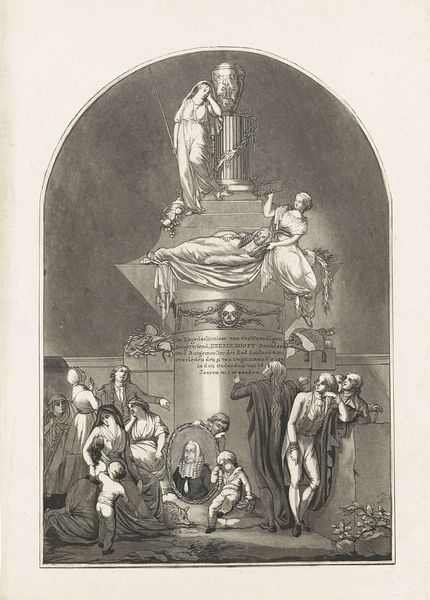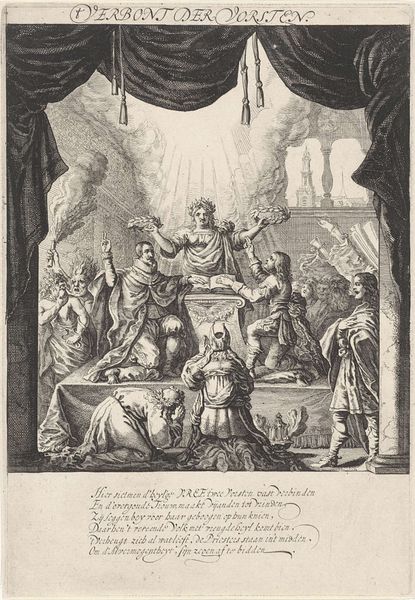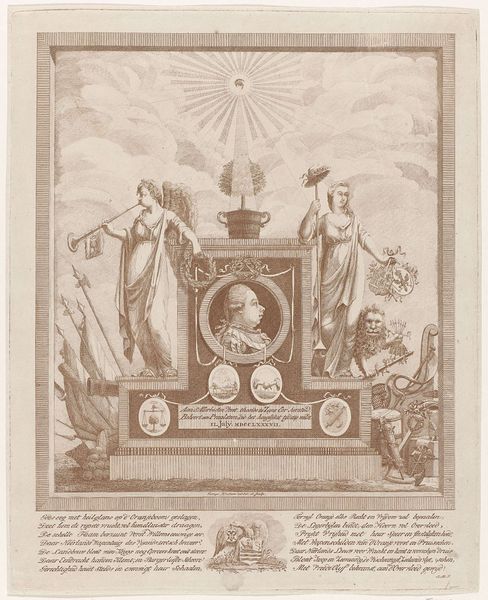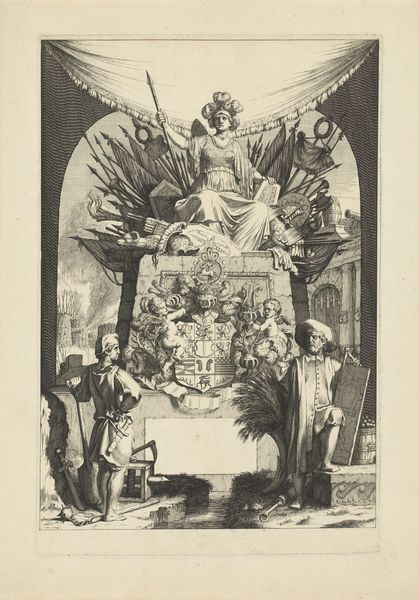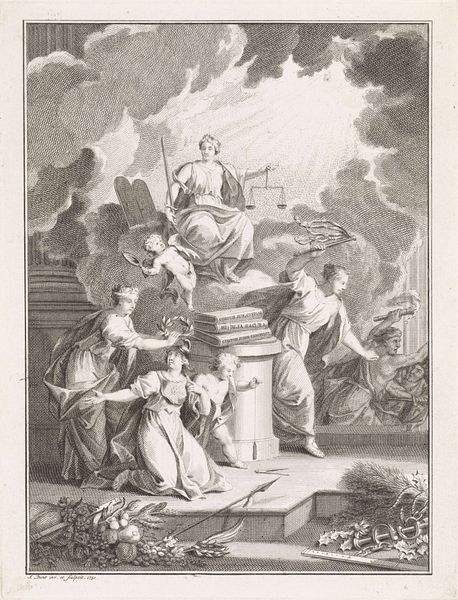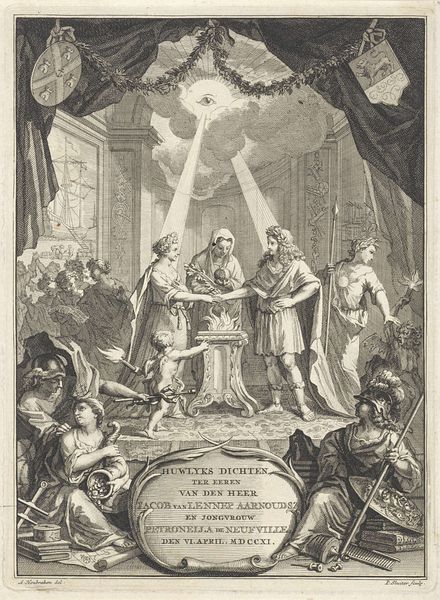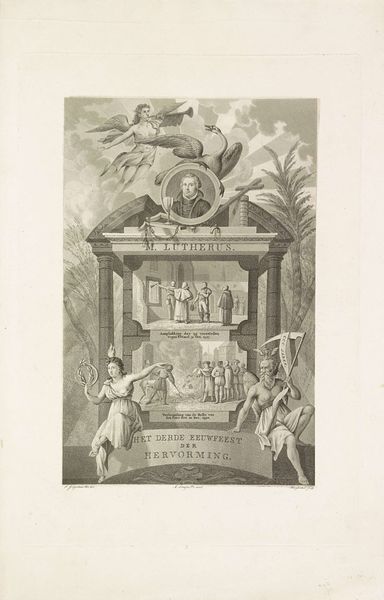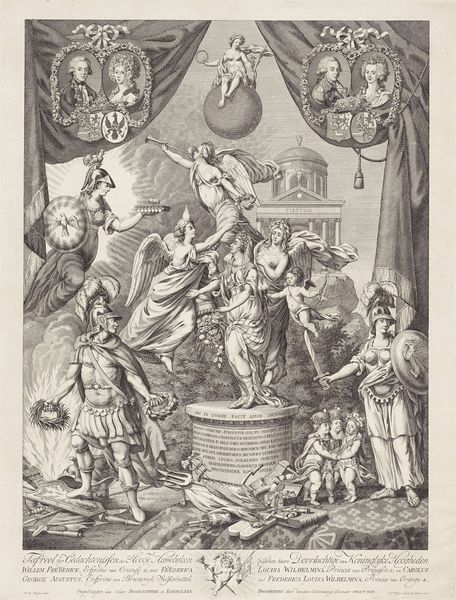
print, engraving
#
portrait
#
neoclacissism
#
allegory
# print
#
old engraving style
#
history-painting
#
engraving
Dimensions: height 314 mm, width 220 mm
Copyright: Rijks Museum: Open Domain
Curator: Let's delve into this print, "Gedenkteken voor Hendrik Danielsz. Hooft," created in 1787 by Noach van der (II) Meer, currently residing in the Rijksmuseum. It's an engraving. What strikes you first? Editor: It's incredibly detailed. I immediately notice the classical figures and allegorical elements - almost overwhelming at first glance! I'm intrigued by the way it uses light and shadow. How would you unpack the composition? Curator: Focusing solely on its visual mechanics, we see a deliberate vertical axis, bisecting the composition. Above, an "all seeing" eye. Below, Hooft's portrait framed by garlands. Notice how the light radiates outwards and is then grounded via architectural details that suggest order. The allegorical female figure acts as weight against the youthful energy to the left. How do these choices direct your gaze and influence your reading? Editor: I see the vertical axis now; it definitely creates a sense of balance and authority. I am wondering about that youthful group though... It feels distinct from everything else. Curator: Precisely! They introduce a dynamism, a contrasting informality through looser forms that would contrast more structured zones of the print. Their presence and activity act as a foil, a moment of visual disruption and dynamism. The engraver manipulates the tonal gradations across all pictorial planes so we must address technique in conjunction with all observations. Do you concur? Editor: Yes, I see what you mean now about those dynamics. I hadn’t noticed how carefully the figures were placed. Also, your point about the contrast in style adds another layer for consideration. Curator: Indeed. Appreciating this piece stems from acknowledging not only its subject and narrative, but its structural and visual complexities. The layering and structuring evident here becomes the primary object of our study. Editor: Thanks, seeing how you analyze those contrasts and directional elements is truly helpful in gaining a fresh viewpoint. Curator: A vital component when encountering artworks, it is always advisable to dissect a works visual infrastructure.
Comments
No comments
Be the first to comment and join the conversation on the ultimate creative platform.
